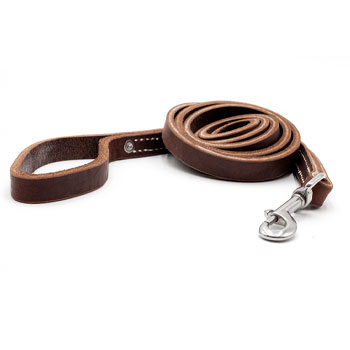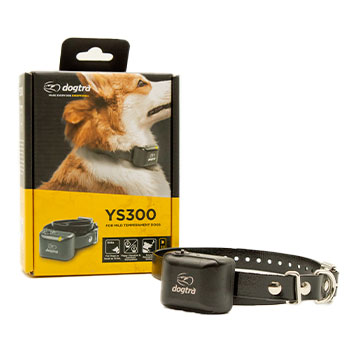May 20, 2011
We adopted a dog 3 months ago and he goes nuts when we leave the house, the reaction is almost immediate. What should we do?
Full Question:
Hello Ed,This is a question about separation anxiety. I've been over all of the posts on your website and on the forum and I am still wondering what you would recommend as my next step with my dog, given what we've done so far. If you have the time to give me even a short answer, that would be great!
I have your Pack Structure and Basic Obedience DVDs. I've been following your rules on pack structure and obedience and have a very well behaved 1.5 year old Australian Shepherd. We adopted him about three months ago and he has really learned a lot.
He is calm and submissive in his crate, on the leash in the house, off leash in the house, on walks and really behaving very well.
I had recently started market training with him and teaching him to lie down, proofing his sit, teaching him to fetch a tennis ball, etc. He was able to learn quickly and seemed to enjoy it.
However, he goes nuts when we leave the house, the reaction is almost immediate. This has been the case since we got him and we've been sending him to dog daycare and the trainer who runs that place has been very good and has helped the dog become confident and well-behaved. We haven't solved the separation anxiety.
We even just recently went all the way back to the beginning and put him in the crate 24/7 except for walks. He is totally calm and submissive in the crate all day and night and as long as we are there.
We got a no bark collar for him and now he does not bark and howl and just whines, drools, licks his paws until they're soaking and tries to escape. His attempts to escape have become more violent and I am worried that he may hurt himself trying to chew on the bars.
What should our next step here be?
Should I go back to the obedience marker training, or is he not ready yet?
Thanks, and Happy Holidays!
Regards,
Steve

 Cindy's Answer:
Cindy's Answer:
Separation anxiety isn’t anything that is easily solved and in many cases you deal with it to some degree for the rest of the dog’s life. This is more typical in dogs like yours, dogs that have been either adopted from a shelter or rehomed. They have a huge amount of anxiety about being left behind.
I’d suggest you read this article on dogs that break out of crates, and make sure the crate you are using can’t be broken out of. The worst thing that can happen is for a SA dog to discover that if they fight hard enough they can escape.
The best thing to do is to teach him about being left alone in a crate in small increments, and never EVER give the dog attention in the crate when he’s anxious. Never make a big deal about letting him out and never let him out immediately upon your return home.
Three months is not a long time to solve this, I have a SA dog that I’ve been managing for almost 6 years. She’ll slip back into old behaviors quickly if I don’t keep the routine very predictable for her. You may want to think about a supplement that helps dogs who have anxiety, Calm Anxiety (I use this with my own dog) is one, and Rescue Remedy is another that our customers have used with good results. Obviously, this isn’t the whole answer but these supplements may help your dog in conjunction with a good training plan.
You can certainly continue with obedience/marker training, this has nothing to do with the anxiety. I’d also recommend giving him as much physical and mental exercise as possible because if he’s tired, he’ll be less anxious overall.
You might be interested in our 2 newest videos, The Power of Training Dogs with Food and The Power of Playing Tug with Your Dog. It’s a great way to train and tire out your dog.
I hope this helps. Cindy
I’d suggest you read this article on dogs that break out of crates, and make sure the crate you are using can’t be broken out of. The worst thing that can happen is for a SA dog to discover that if they fight hard enough they can escape.
The best thing to do is to teach him about being left alone in a crate in small increments, and never EVER give the dog attention in the crate when he’s anxious. Never make a big deal about letting him out and never let him out immediately upon your return home.
Three months is not a long time to solve this, I have a SA dog that I’ve been managing for almost 6 years. She’ll slip back into old behaviors quickly if I don’t keep the routine very predictable for her. You may want to think about a supplement that helps dogs who have anxiety, Calm Anxiety (I use this with my own dog) is one, and Rescue Remedy is another that our customers have used with good results. Obviously, this isn’t the whole answer but these supplements may help your dog in conjunction with a good training plan.
You can certainly continue with obedience/marker training, this has nothing to do with the anxiety. I’d also recommend giving him as much physical and mental exercise as possible because if he’s tired, he’ll be less anxious overall.
You might be interested in our 2 newest videos, The Power of Training Dogs with Food and The Power of Playing Tug with Your Dog. It’s a great way to train and tire out your dog.
I hope this helps. Cindy
100% (12 out of 12)
respondents found this answer helpful


Can't find what you're looking for?








